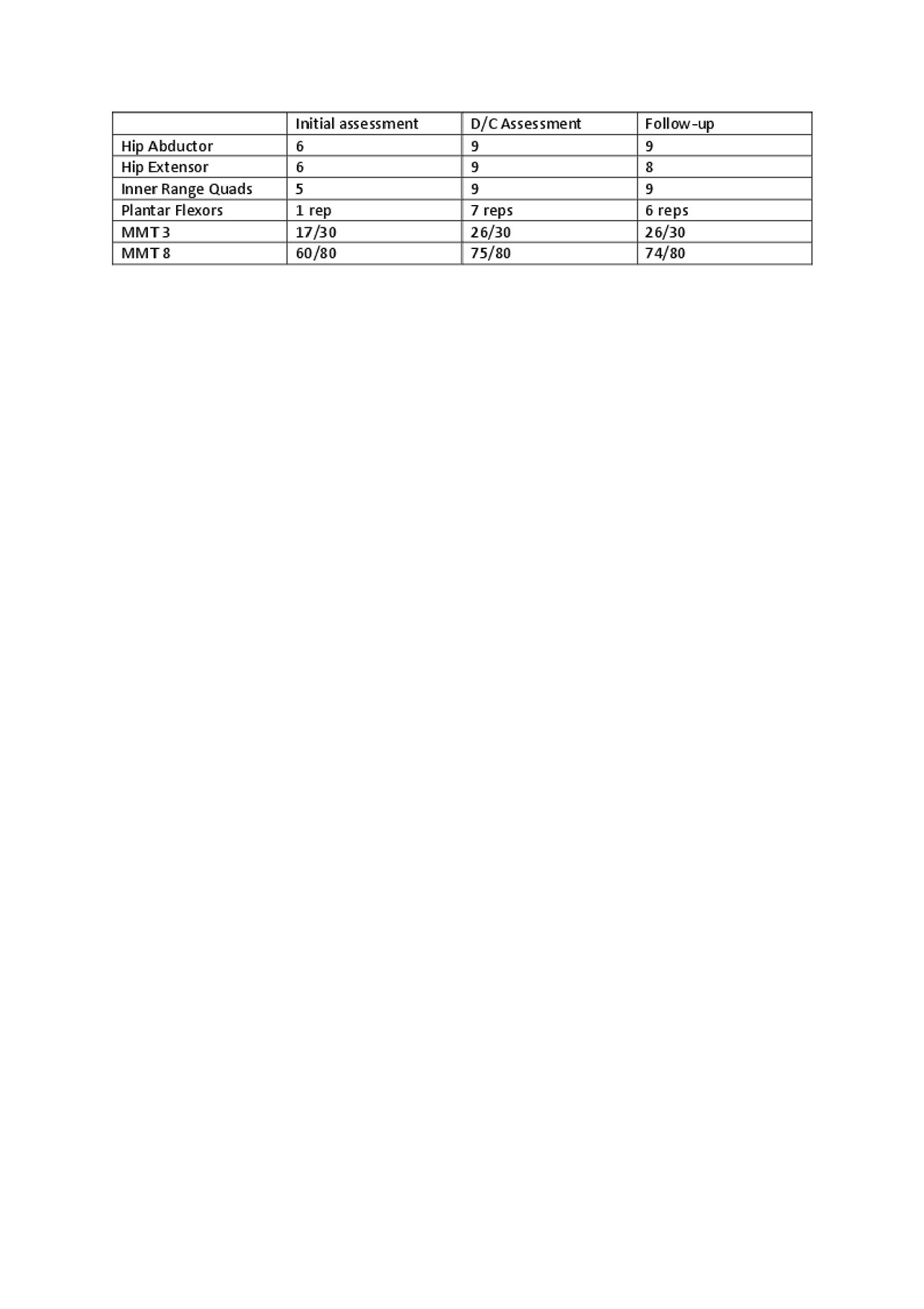Session Information
Date: Monday, November 11, 2019
Title: Pediatric Rheumatology – ePoster II: SLE, Juvenile Dermatomyositis, & Scleroderma – ARP
Session Type: Poster Session (Monday)
Session Time: 9:00AM-11:00AM
Background/Purpose: Young people with Rheumatological conditions often experience ongoing pain, muscle weakness and reduced function despite modern medication. The unit at Great Ormond Street Hospital provides an intensive rehabilitation programme which focuses upon managing these symptoms. This review examines the immediate response and longer term follow up to the treatment.
Methods: A retrospective review of the notes was completed upon 123 children admitted for the intensive exercise therapy. Outcomes of specific muscle strength in the form of the Kendall scale grouped into the Manual Muscle Strength of 3 groups – gluteus maximus, gluteus medius and vastus medialis (MMT3) and the more extensive MMT8 are used, as well as a measure of pain and function (CHAQ). The outcomes were assessed at the admission and discharge of the rehabilitation programme and at the first follow up at 3 months.The treatment consists of focusing on a progressive resisted exercise programme completed 2x daily (2.5hrs per day) for 2 weeks (16 sessions in total) and primarily focuses upon correcting the biomechanics of the body as well as increasing aerobic fitness and education into managing pain and fatigue and learning to function despite pain. All the young people increased their exercises to 30 repetitions with the use of weights (max 3kg) focusing initially on specific muscle strengthening.
Results: The notes of 123 children were reviewed consecutively. 71/123 were female and the average age was 11.7 years (Range 4 – 17.5yrs). 44/123 had non-inflammatory pain, 10/123 has CRPS and the others had an inflammatory condition with 36/123 diagnosed with JIA. On admission the average pain score was 5.6/10 VAS and this reduced to 3.8/10 at follow up. The CHAQ reduced from 1.25/0.825. School attendance improved for most after the rehabilitation.
Conclusion: An intensive rehabilitation programme is effective in improving muscle strength and function as well as reducing pain and this is maintained for many months after discharge from the programme.
To cite this abstract in AMA style:
Maillard S, Noar K, Stone L. Review of Effectiveness of an Intensive Rehabilitation Programme in Managing Strength, Pain and Function in 123 Young People with Rheumatological Conditions [abstract]. Arthritis Rheumatol. 2019; 71 (suppl 10). https://acrabstracts.org/abstract/review-of-effectiveness-of-an-intensive-rehabilitation-programme-in-managing-strength-pain-and-function-in-123-young-people-with-rheumatological-conditions/. Accessed .« Back to 2019 ACR/ARP Annual Meeting
ACR Meeting Abstracts - https://acrabstracts.org/abstract/review-of-effectiveness-of-an-intensive-rehabilitation-programme-in-managing-strength-pain-and-function-in-123-young-people-with-rheumatological-conditions/

